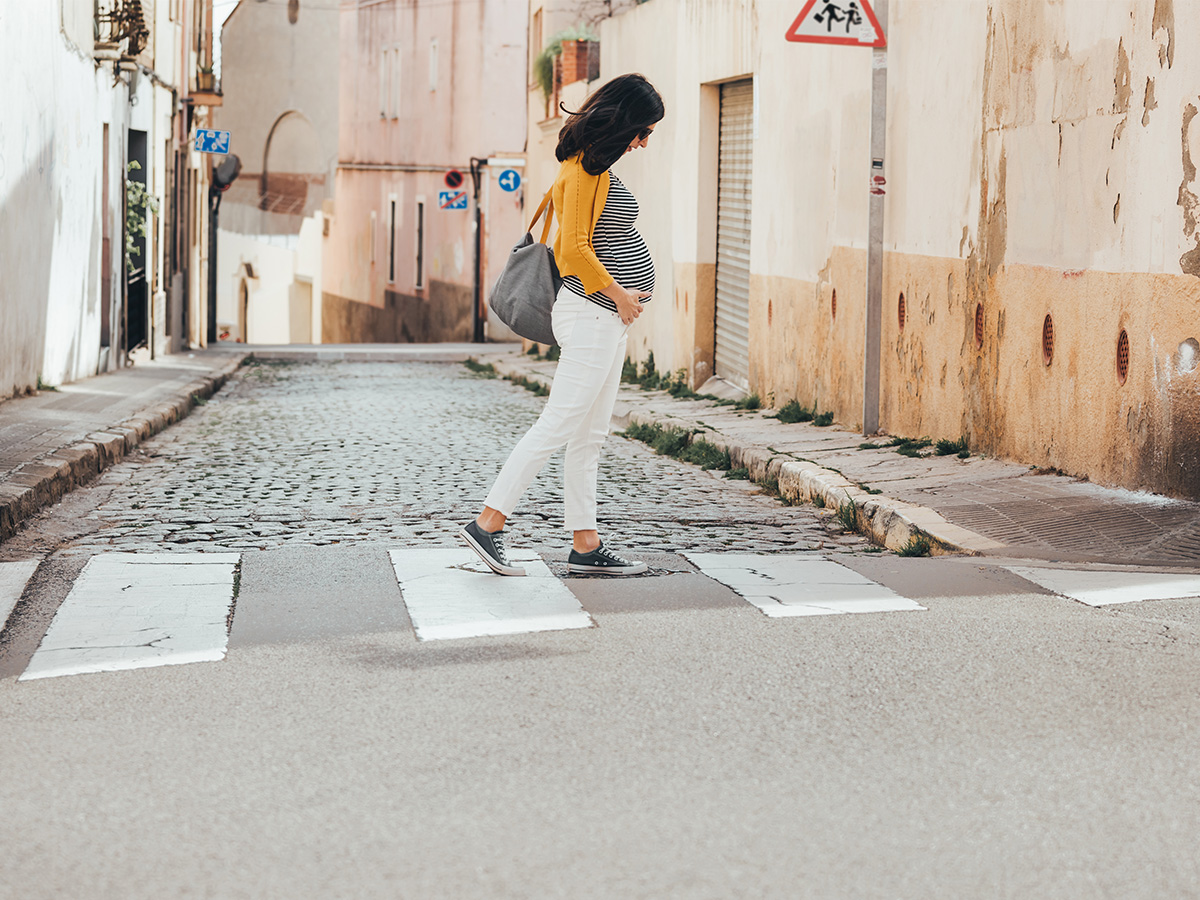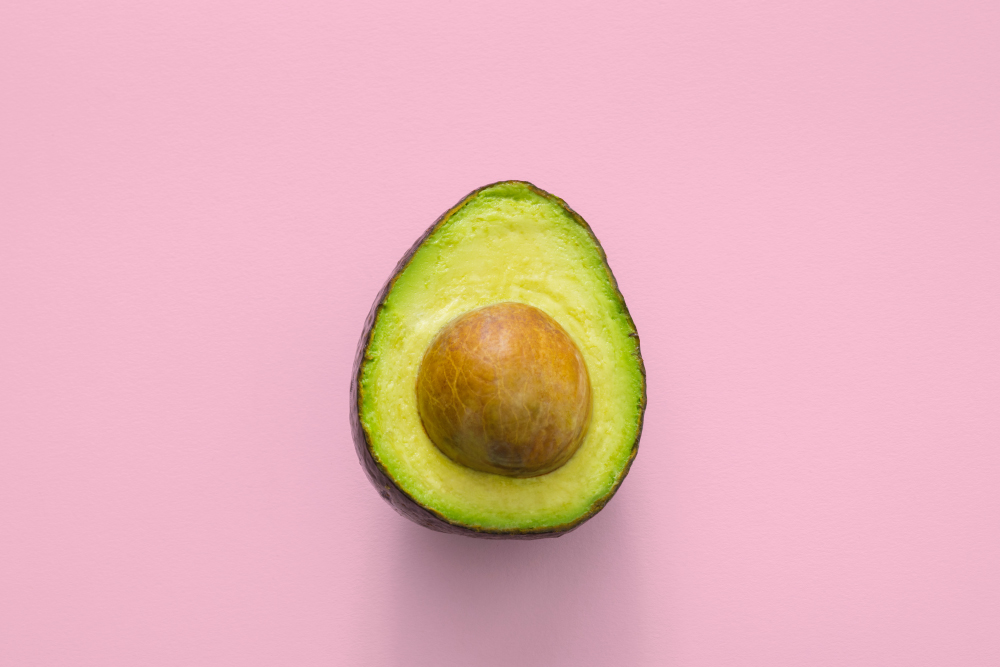

Pregnancy has a remarkable effect on our entire body – and while our key focus may be on our growing baby and belly, there’s one part of the body that has to take on all of the effects of both the physical changes as well as the hormonal changes that a woman’s body goes through – our feet.
With foot pain and discomfort in pregnancy having the potential to limit our daily activities, exercise potential, and add further strain on our already exhausted bodies, taking small steps to look after the feet can make a massive difference to the way a woman feels and how she experiences day-to-day life throughout her three trimesters. Here are eight simple and effective ways to look after your feet during pregnancy, as recommended and used by podiatrists.
1. For Foot And Ankle Swelling, Wear Compression Socks
During pregnancy, your blood volume increases by around 50% and your growing uterus can put pressure on the surrounding structures, including the vena cava vein that is responsible for helping return the blood from your legs back to the heart, slowing its flow. This combination, with the heart having a harder time to pump blood back up the legs, can lead to swelling, which often presents in the ankles and feet.
To help reduce your swelling and the associated discomfort, start by elevating your feet and legs above the level of your hips (or heart if you’re laying down) to allow the blood to return to the upper body more easily, and drinking plenty of water to help promote healthy kidney function. Next, invest in some medical grade compression socks that have a compression rating in mmHg. mmHg stands of millimetres of mercury and you can interpret a reading of ‘20-30 mmHg’ as the amount of compression will not fall below 20mmHg or exceed 30mmHg. The most common rating available at the chemist is between 15-20 mmHg, which is the recommended place to start. For anything higher, we recommend you consult your GP.
2. For Achy Feet, Consider Orthotics
With the weight of your whole body resting on your feet with every step, achy feet are a common part of the pregnancy journey for many women. This is where orthotics may help restore a better foot posture, improve your comfort, and help your feet feel well supported throughout the day. Our orthotics are custom-made following a 3D scan of your feet and legs, paired with an extensive biomechanical assessment to ensure that you’re getting the right support for the best outcomes for your feet. Your orthotics will work every time you’re wearing them, so keep them in your everyday shoes and enjoy the relief.
3. Your Feet May Get Wider, Choose Wider Shoes
The normal physiological changes that occur during pregnancy can mean your feet may flatten and widen. Many women find that the width of their feet increases – and the length increases by between half a size to a full size too. This is where choosing a wider, well-fitted pair of shoes can make a world of difference. Just like length sizing options, many shoe brands offer different width options, which looks like a letter rating near where the size is displayed on the side of the box. For example, for Asics, their styles range from an A for a narrow foot, to E ratings (e.g. EE, EEEE) for extra wide feet. See our shoe store for the styles we recommend.
4. For Fungal Nail Infections, Treat Early
With your body and immune system working tirelessly throughout your pregnancy to support and protect both you and your baby, it may not be as focused on things like fungal nail infections. As fungal nail infections start as a minor infection that may look like a white or yellow spot or streak, and progressively worsen over time to become the full-nail infection you often see, treating fungal nail infections early is key to preventing them from getting out of control and becoming much more difficult to successfully treat.
We offer laser treatment for fungal nails, which is pregnancy-safe and doesn’t require any repeated painting of nail lacquers or products daily – which can be almost impossible if you struggle to reach your feet.
5. For Ankle Weakness, Choose Supportive Shoes
The normal physiological changes that occur with pregnancy can mean our ankles may feel weaker or less stable than they used to. An easy way to help with this is to choose supportive shoes that have a firm heel counter that enclose and support your ankles.
Our podiatrists can recommend the best shoes to match your foot type at your appointment, and you can also visit our online shoe store to see our recommended styles.
6. For Altered Walking Patterns, Keep Your Feet Supported
As your baby grows, your centre of gravity shifts and makes you adjust the way you walk. This can affect your hips, knees, legs and feet. If you are noticing any aches or pains, particularly in your feet, come in and see one of our podiatrists to discuss what management strategies might work best for you.
7. For Ingrown Toenails, See Your Podiatrist ASAP
With the extra blood volume in the body and swelling in the feet, this can mean that your nail is more likely to push against the skin surrounding the nail, which can then turn into an ingrown toenail. Even a small nail spicule piercing the skin can become incredibly painful – and with it being more difficult to see or reach your toes, the problem could quickly escalate if an infection occurs. If you have an ingrown toenail, see your podiatrist to get it treated ASAP, either as a one-off or if this isn’t your first ingrown toenail, consider getting it fixed permanently.
When it comes to caring for women’s feet, our podiatrists at My FootDr are trusted by hundreds of Australians every day.
Book your appointment with our experienced podiatry team by calling us on 1800 FOOT DR or booking online here.





 When your feet like they’re on fire, standing, walking and even getting out of bed can quickly become daunting tasks. Whether this burning sensation is constant or changes in intensity during the day, you
When your feet like they’re on fire, standing, walking and even getting out of bed can quickly become daunting tasks. Whether this burning sensation is constant or changes in intensity during the day, you 
 Tradies – you feel
Tradies – you feel 

